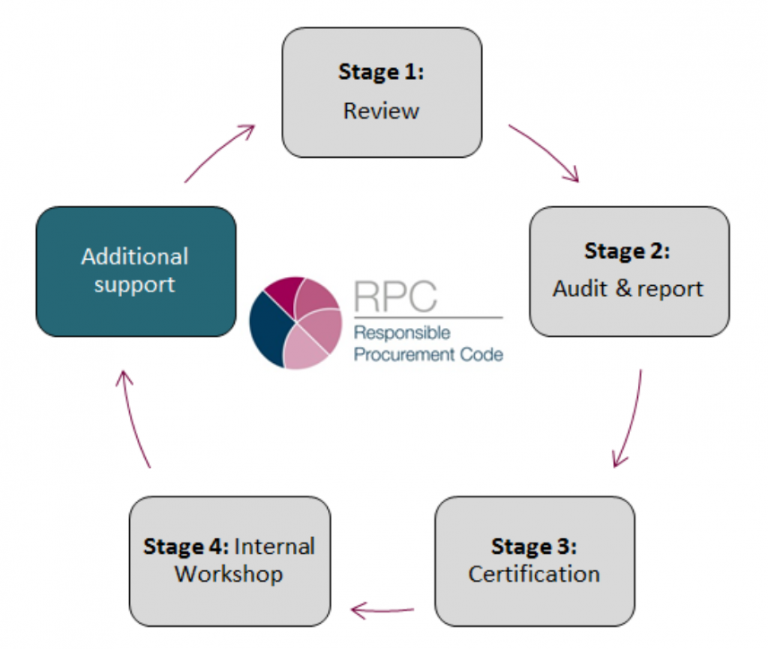UCL follows The Responsible Procurement Code; an external self-assessment verification scheme to demonstrate we manage the environmental, social & economic impacts of our procurement and supply-chain.
What is responsible procurement?
We define responsible procurement as: " the process whereby environmental, social and financial impacts of all of UCL's procurement processes are taken into account, making sure to reduce negative impacts and enhance positive impacts."
Responsible Procurement Code at UCL
Responsible procurement at UCL is a collaboration between the Sustainability and Procurement team.
The RPC scheme provides UCL with recommendations for improvement. With regular audits, UCL follows a cycle of continuous improvement - audit, certification, improvement and re-auditing.
The RPC Audit
The RPC audit tool is aligned with best practice for responsible procurement, most notably the UK government’s Flexible Framework and the British Standard guidance BS 8903.
The RPC takes organisations up to level 3 on the flexible framework.
The code reviews our progress in 5 key areas:
- Policy, Strategy and Communication;
- People;
- Procurement Process;
- Supply Chain;
- Measurement.
UCL's RPC audit is delivered by the consultancy firm Anthesis. They conducted a 1-day audit, where external experts viewed evidence and analysed a sample of UCL's contracts and contract management documents. These elements are scored against bronze to platinum criteria.

Audit results
The RPC scheme provides UCL with recommendations for improvement. With regular audits, UCL follows a cycle of continuous improvement - audit, certification, improvement and re-auditing.

> UCL Achieves Gold on Responsible Procurement Code.
- 2015 – Achieved Silver – 64% (pdf);
- 2019 – Achieved Gold – 73% (pdf);
- 2021 – Achieved Gold – 78% (pdf).
 Close
Close

